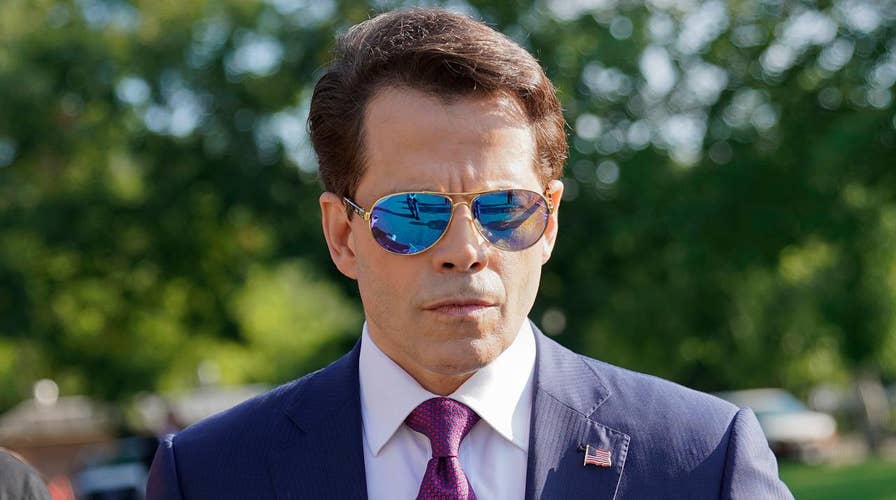Retired Gen. John Kelly made it very clear he was in charge as White House chief of staff on is first day on the job Monday. He fired Communications Director Anthony Scaramucci after only 10 days on the job for using extremely crude language in a phone call with New Yorker reporter Ryan Lizza.
There’s some irony in the fact that Scaramucci – the man in the White House who most resembled President Trump’s brash New York style – has been fired by the man Trump picked to run his White House.
Does this mean that Trump might finally listen to a top aide and curb his most self-destructive tendencies – shoot- from-the-hip tweets, off-topic messaging, chaotic policymaking and gratuitous insults of Washington players?
The answer is maybe. It will depend how quickly Kelly can impose a sense of order and effectiveness to a chaotic White House management style.
There’s some irony in the fact that Scaramucci – the man in the White House who most resembled President Trump’s brash New York style – has been fired by the man Trump picked to run his White House.
There is precedent for President Trump to change – albeit grudgingly and only in the midst of a crisis.
In the early 1990s, as his real estate empire was collapsing around him, Trump did show he can act in a serious, restrained way that inspired some confidence in his ability to recover.
Trump nearly went bankrupt in 1990 and was forced to ask dozens of banks to whom he owed $4 billion to change the terms on their loans and forgive some of his debts. In describing this deal, he has said he focused on it with more intensity and purpose than anything he’d done in his life to that point.
In “The Choice 2016,” PBS’s two-hour documentary on the election, Gwenda Blair, author of “The Trumps,” reports that “bankers held gigantic meetings at Trump Tower with, like, 40 banks all sitting around in a room, Donald very sober, looking like not quite penitent perhaps, but serious.”
Blair says that Trump escaped collapse by convincing his creditors he was more valuable to them “financially alive rather than dead.” He proceeded to recoup his losses by shifting from real-estate deals to licensing his well-known name.
Why is President Trump now having such difficulty changing his behavior when he should know he is hurting himself? He has provided the answer.
In 2015, financial journalist Michael D’Antonio published “Never Enough: Donald Trump and the Pursuit of Success.” The book was bolstered by 10 hours of exclusive interviews with the mogul. Some of the quotes are very revealing. When asked if he is ever introspective, Trump replied: “I don’t like to analyze myself, because I might not like what I see.”
“Fortunately, in many settings, Trump has controlled his childish tendencies,” D’Antonio writes. But now Trump’s victory in the presidential race seems to have created a belief in his own invincibility and reinforced his traits.
D’Antonio writes: “He is like a 13-year-old teenager who can stay up as late as he wants, eat junk food; there’s no adult who has the right to take away his phone and stop the tweeting.”
Yes, President Trump’s lack of impulse control has also been an asset to him. He comes across as spontaneous, funny, and unscripted – the opposite of most politicians. But unless he comes across as a little less thrilling and a lot more responsible, he will never be able to govern effectively.
In the end, the extent to which Donald Trump’s White House function better will not be dependent on Gen. Kelly’s management skills. It will depend on the extent to which Kelly can convince the man in the Oval Office that he has to discipline himself – and not just in the midst of a crisis.

